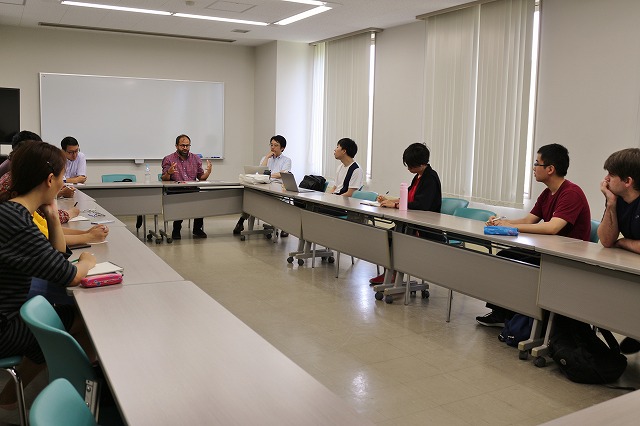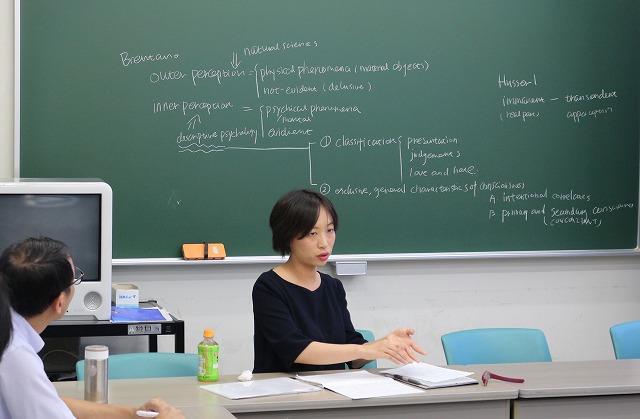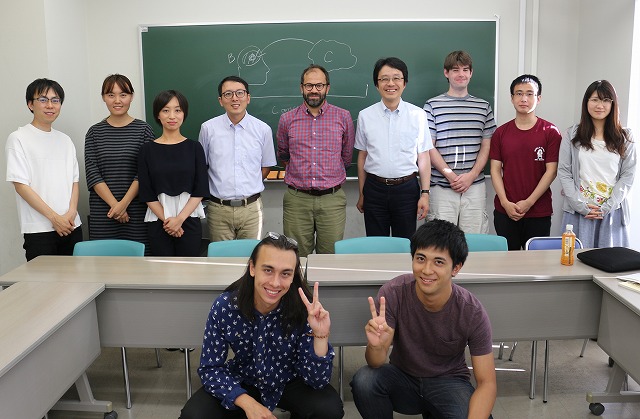Japanese version of this article
The course “Self in Phenomenology and Japanese Philosophy” was held as one class for Hokkaido Summer Institute 2018. The course lasted for 5 days, and was held first from August 1st to 3rd, and then from August 6th to 7th.
This course aimed to tackle the questions of “What is the self?” and “How can we gain a better understanding of the self?” Participants in this class set out to provide a response to these questions by rigorously investigating various theories of the self in both contemporary Western philosophy and modern Japanese philosophy.
The first 2 days of this 5 day course started with lectures from Professor Nicholas De Warren, who has been teaching at Pennsylvania State University since autumn of last year. Professor De Warren first lectured on how the founder of the Phenomenological Movement, Edmund Husserl, understood the concept of the self. He then lectured on Martin Heidegger’s understanding of the self in Being and Time. Next, Dr. Chin-yuen Cheung of the Chinese University of Hong Kong lectured on Kitaro Nishida – a major philosopher in modern Japan – and his theory of selfhood. Finally, Hokkaido University Faculty of Letter’s own Professor Taguchi gave his lecture by comparing Husserl’s and Nishida’s concepts of self. After each lecture, time was set aside for class-discussions. Here, participants were able to ask questions about the course content to all of the instructors, as well as to make arguments in favor of their own views of the self. By means of this active-learning style classroom, participants were able to better understand the topic of the course, and were thus able to further develop their own thoughts on the matter.
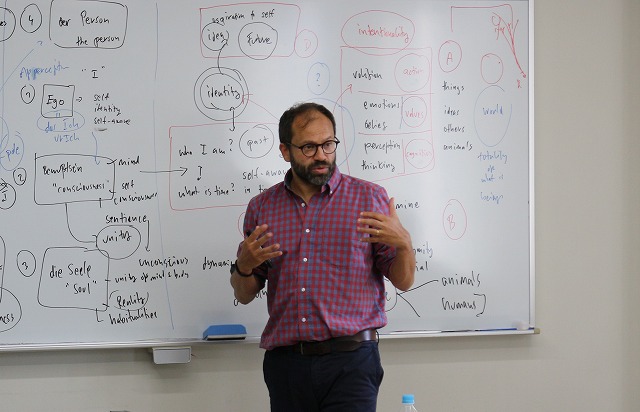 Nicholas De Warren (Pennsylvania State University/America – Associate Professor)
Nicholas De Warren (Pennsylvania State University/America – Associate Professor)
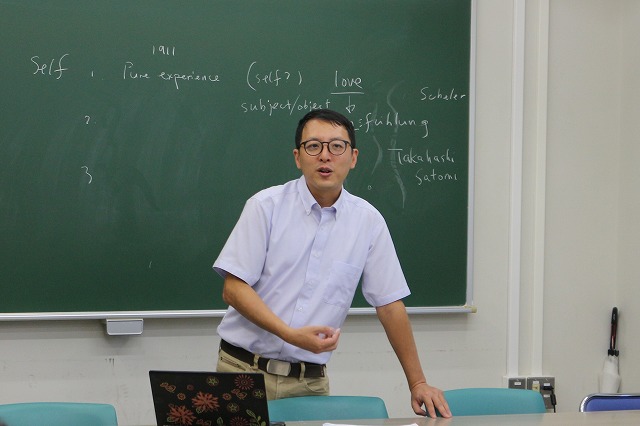 Chin-yuen Cheung (Chinese University of Hong Kong – Lecturer)
Chin-yuen Cheung (Chinese University of Hong Kong – Lecturer)
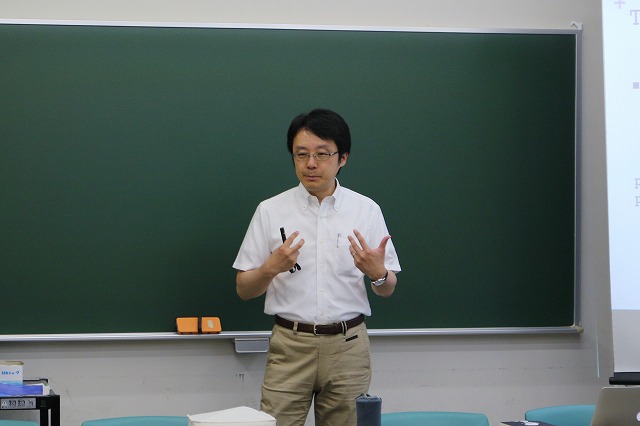 Professor Shigeru Taguchi (Hokkaido University Faculty of Letters – Ethics Department – Professor)
Professor Shigeru Taguchi (Hokkaido University Faculty of Letters – Ethics Department – Professor)
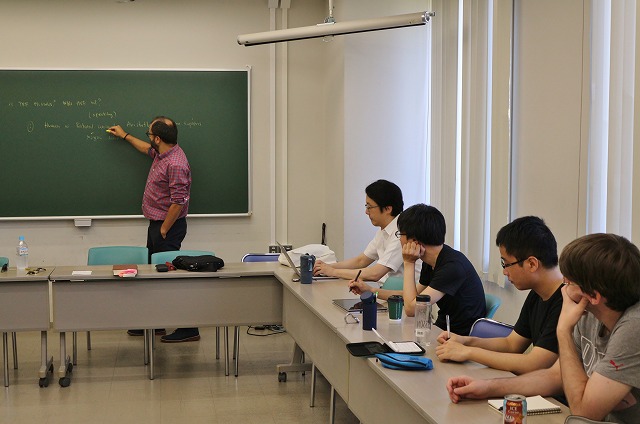 Students listening intently to the lecture
Students listening intently to the lecture
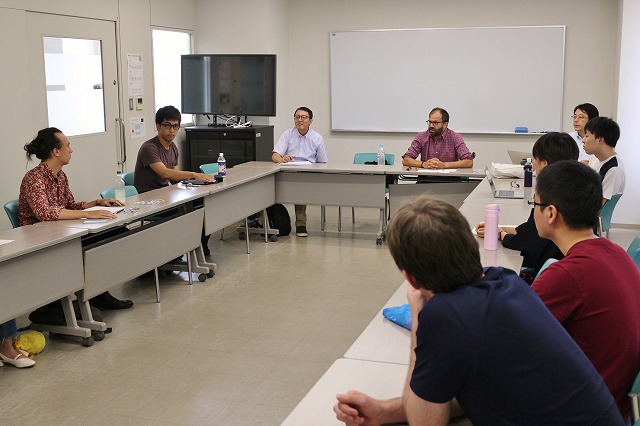 A student asking a question about the lecture content
A student asking a question about the lecture content
In addition, time was made on the last day of the course for student presentations. Students were divided into small groups, where they would make presentation slides for their chosen theme. Being able to present in English in front of researchers working at the front of line of philosophical research turned out to be an invaluable experience for the students. Students were able to show the results of the 5 day course by smoothly answering questions from both the lecturers and their peers. The sense of accomplishment and newfound confidence in the students was evident in their smiles when the last day of class ended.
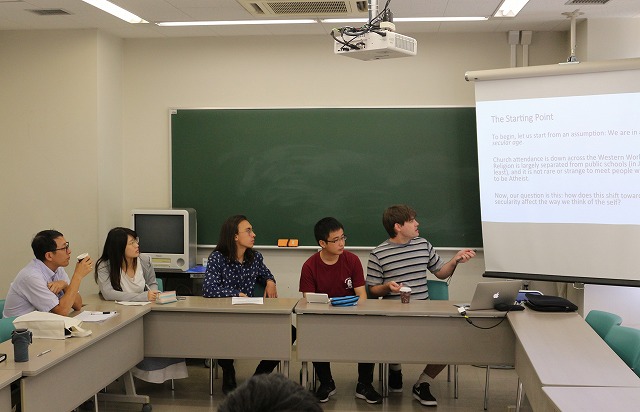 Students giving their presentation
Students giving their presentation
This marks the final year for this course, which for 3 years attempted to better understand various themes by comparing modern philosophical standpoints in the West and East. Starting from next year, the emphasis will change to exploring the standpoint of “Enactivism” – an approach that claims that our cognition and experience is not something that passively occurs in organism, but rather that experience and cognition are made possible by our action. In doing so, the course will take a multi-faceted approach that integrates philosophy, cognitive science, and neuroscience.



